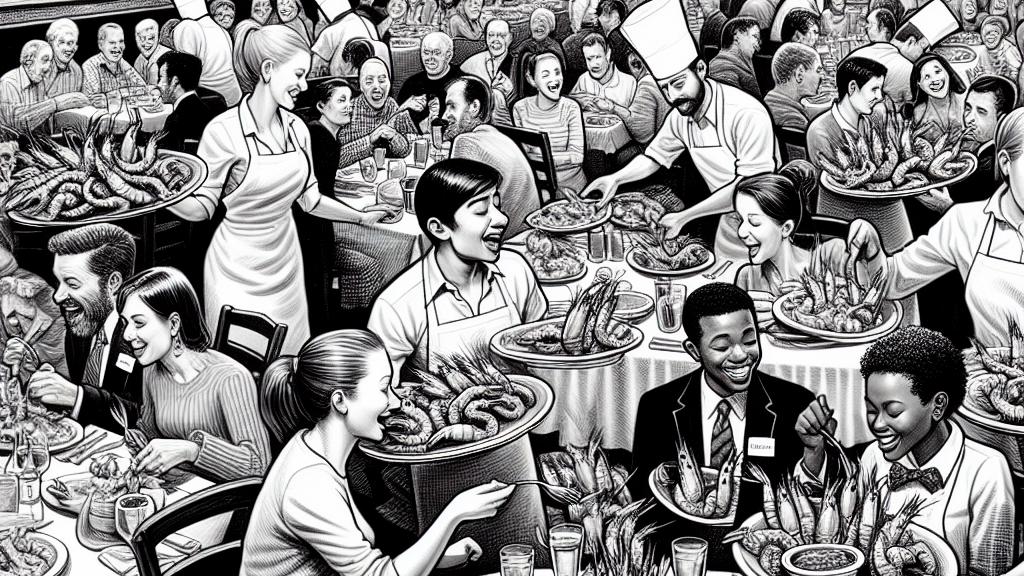Shrimp Showdown: The Gluttony that Crippled Red Lobster!
Overview
- The 'Endless Shrimp' promotion proved disastrous for Red Lobster's financial health.
- Poor management decisions and the impact of COVID-19 led to a steep decline.
- Red Lobster's rich cultural significance for Black diners highlights its historical importance in dining.

A Gluttonous Beginning
Imagine the scene: in the bustling world of American dining, a seafood brand captivated hearts and appetites alike since its inception in 1968 in sunny Lakeland, Florida. Red Lobster, with its warm decor and enticing menu, soon unveiled the jaw-dropping 'Ultimate Endless Shrimp' deal, igniting a tidal wave of excitement among food lovers. Diners flocked in droves, eager to savor plate after plate of succulent shrimp, from crispy coconut to rich garlic scampi. Initially, this seemed like a goldmine, but soon the cheerful clamor transformed into an overwhelming cacophony as servers struggled to keep pace. Picture the chaos: shrimp orders pouring in faster than the restaurant could handle, resulting in a flurry of frustrated staff and disgruntled customers. This feeding frenzy starkly revealed an essential truth: while popularity can draw crowds, it takes more than buzz to keep a business afloat.
Mismanagement and Setbacks
However, the challenges ahead loomed larger than a mountain, steeped in years of mismanagement that weighed heavily on Red Lobster's fate. As Thai Union Group, the parent company, tried to implement severe cost-cutting strategies, they believed it could inject new life into the struggling brand. Yet, instead of reigniting its spark, these tactics stifled morale, leaving employees feeling stretched thin and undervalued. By early 2024, the relationship had frayed irreparably, much like an old friendship overshadowed by neglect. With multiple leadership changes, years of misguided decisions, and a failure to adapt to evolving diner preferences, what had once been a beloved meeting place slowly spiraled toward its demise. This wasn’t just about a restaurant’s failure; it was a poignant reminder that without nurturing the spirit of a business, even the brightest stars can fade into the night.
Cultural Significance and Decline
Yet, Red Lobster's narrative is deeply entwined with the cultural tapestry of American dining, particularly resonating within the Black community. For generations, this restaurant served as a cherished sanctuary, offering more than just seafood; it provided an inclusive space for celebration and connection. The magic of this place extended from the bubbling conversations around the table to the delicious cheddar bay biscuits that seemed to bridge gaps and create lasting memories. Even pop culture embraced it, with influential figures like Beyoncé mentioning it in songs, solidifying its iconic status. However, as locations shuttered their doors and nostalgia filled the air like a fading melody, many mourned not just the loss of a restaurant but the decline of a community gathering place. Red Lobster's empty seats symbolize more than economic failure; they mark the disappearance of a cultural landmark where joyful moments used to flourish.

Loading...